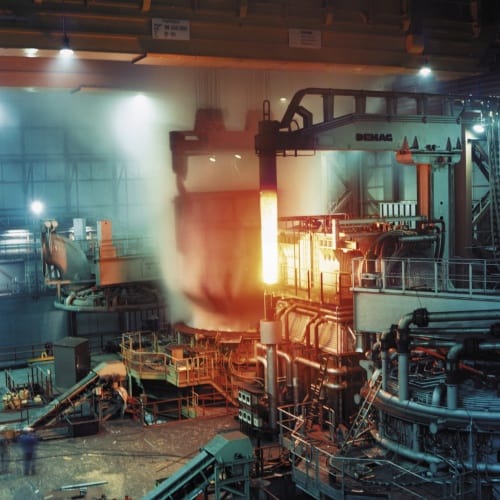Major steelmaker AcelorMittal has joined forces with carbon recycling specialist LanzaTech and announced plans to build Europe’s first commercial-scale plant to convert waste gases from steelmaking into bioethanol. The plant will be sited at AcelorMital’s steelworks in Ghent, Belgium, will produce 47,000tpa of ethanol when at full capacity and is slated for start-up in mid-2017.

Most of the waste gas from steelmaking is carbon monoxide, and emissions comprise about half of the carbon put into the process. Currently, this waste gas is flared off, or at best burned to provide heat and power in the steel mill; but both result in CO2 emissions. LanzaTech, a company spun-out from the University of Aukland in 2005, has developed a process using a proprietory strain of a microbe called Clostridium autoethanogenum to digest the monoxide and convert it into ethanol. An ancient form of life that predates cyanobacteria or algae, the microbe evolved in the vicinity of deep-ocean hydrothermal vents and uses only gases to derive energy. LanzaTech operates pre-commercial plants at steelmills in Beijing and Shanghai, both with 300tpa capacity, as well as smaller plants in the US, Taiwan and New Zealand.
AcelorMittal has been working on the project since 2011, and has formed a long-term partnership with LanzaTech with plans to implement the technology at further steelmills in the future once it has proved the commercial case at Ghent. It believes it could produce as much as 500,000tpa of ethanol, most of which would be used in fuel blending.
”This partnership is an example of how we are looking at all potential opportunities to reduce CO2 emissions and support a transition to a lower carbon economy,” said Carl De Maré Vice President, Innovation, ArcelorMittal. “Steel is produced through a chemical process that results in high levels of waste gases being emitted; this new technology will enable us to convert some of these waste gases into fuels that deliver significant environmental benefits when compared to conventional fossil fuels.”
Construction work on the €87m plant will start this year, with engineering, commissioning, autoimation and key equipment provided by Primetals Technology, a technology and service provider to the iron and steel industry; it will be built in two phases; the first, with a capacity of 16,000tpa will come on-stream in misd-2017, with the second following in 2018. According to the partners, every tonne of bioethanol produced will reduce the steelmill’s CO2 emissions by 2.3tonnes.
Jennifer Holmgren, LanzaTech’s chief executive, added: “We are tremendously excited to announce this partnership and our first production facility in Europe at a time when it is abundantly clear that we need all solutions and the commitment of large corporations, cities and countries around the world, to help us stay within our 2 degree carbon budget and keep fossil reserves in the ground.”




Project to investigate hybrid approach to titanium manufacturing
What is this a hybrid of? Superplastic forming tends to be performed slowly as otherwise the behaviour is the hot creep that typifies hot...